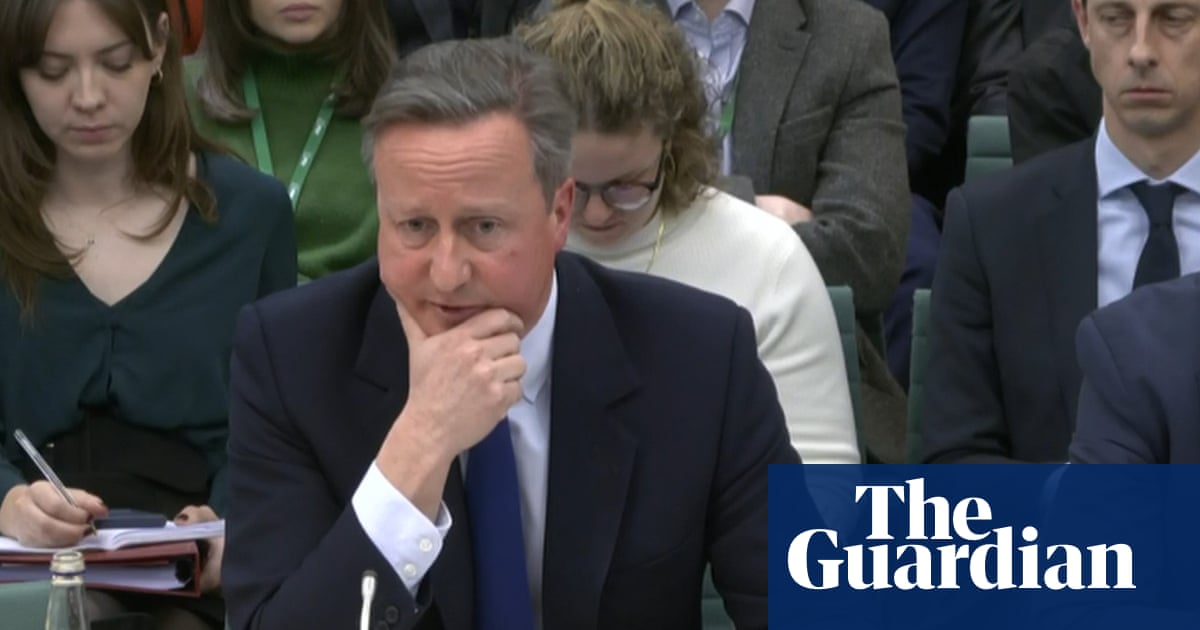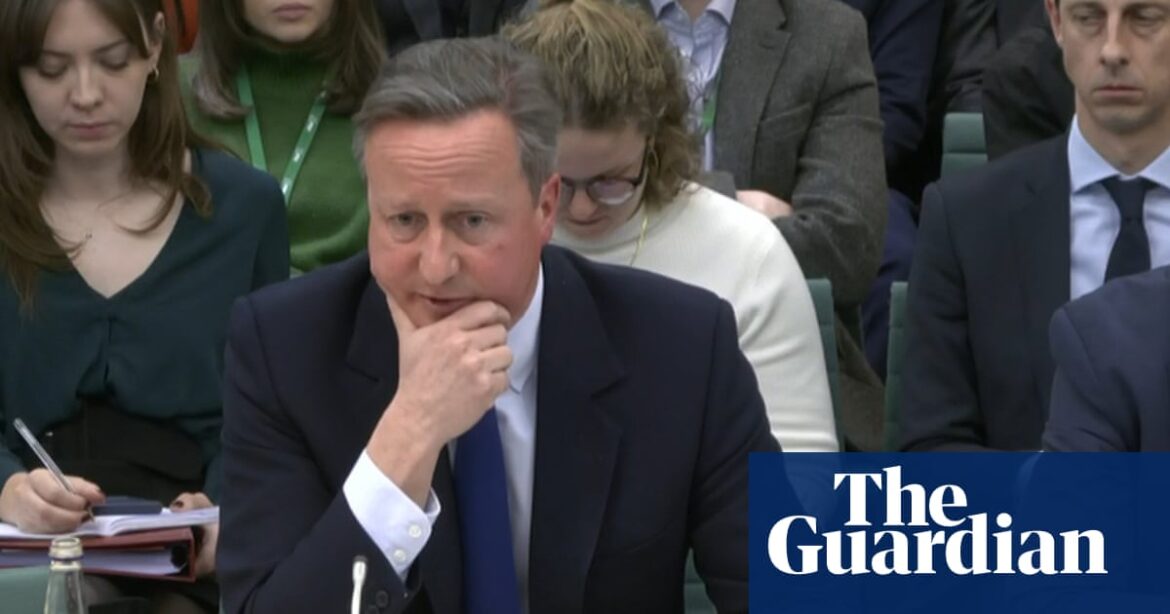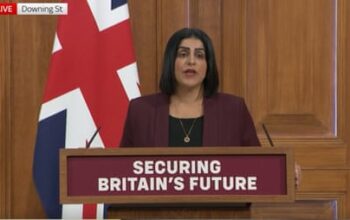
The government of Britain has acknowledged that, as an occupying force, Israel was obligated to provide essential resources to the citizens of Gaza in accordance with international humanitarian law.
David Cameron, the foreign secretary, called on Israel to eliminate barriers that hinder the delivery of humanitarian aid to the territory. These barriers are putting the population at risk of widespread hunger.
Lord Cameron provided a list of modifications that Israel must implement, such as keeping border crossings open for 24 hours and on weekends.
During his initial questioning by members of the foreign affairs select committee on Tuesday, Cameron faced strong scrutiny regarding the potential violation of international humanitarian law by Israel’s military blockade of Gaza. This was his first cross-examination since he unexpectedly became foreign secretary.
Initially, he expressed uncertainty about whether Israel was the lawful occupying force in Gaza, but ultimately acknowledged that it was de facto the case.
When asked about Israel’s responsibility to provide water to Gaza as the occupying country, Cameron admitted that Israel should not have cut off the supply and should instead reinstate it.
Alicia Kearns, the chair of the committee, asked Sir Philip Barton, the permanent under secretary at the Foreign, Commonwealth and Development Office, to acknowledge that Israel, as the occupying power, is obligated under international humanitarian law to provide water. Sir Philip initially responded, “You are asking me a technical question about the obligations of occupying powers in international law. I believe you are correct, Chair, but I am not a lawyer.”
Kearns spoke up: “Our partnership has been successful because we trust that you are knowledgeable about these specifics. It’s not a matter of ‘I assume you are right.’ That is the responsibility of an occupying force.”
Sir Philip responded, saying, “I agree, that is correct.”
Cameron stated that he had not received any guidance suggesting that he should suggest ceasing UK arms export permits to Israel. When asked if he had sought legal advice regarding potential violations of international humanitarian law by Israel, he evaded the question, stating that it had been brought up on numerous occasions. He expressed concern over Israel’s actions possibly violating international law, and acknowledged consulting with his department’s lawyers for this reason.
He had not requested and did not anticipate that Israel would disclose its methods of targeting, but he was given statistics by Israel regarding the percentage of collateral damage. He stated, “We are aware that their claims are not satisfactory.” Kearns estimated it to be 20%.
The foreign minister also dismissed South Africa’s accusation that Israel is guilty of genocide, which is set to be examined at the international court of justice in The Hague on Thursday. “I do not believe it is beneficial. I do not support it. I do not think it is accurate. We should not casually use terms like genocide,” he stated.
Ignore advertisement for newsletter
after newsletter promotion
Cameron emphasized that it is the responsibility of the courts, not the states, to determine what qualifies as genocide. However, he also stated, “In our opinion, Israel has the right to protect itself.”
The foreign secretary strongly criticized Israel for impeding aid from reaching Gaza. He stated that currently only 150 trucks per day are able to enter Gaza, but it should be closer to 500. He emphasized the urgency of the situation, stating that without an increase in aid, more people will suffer from hunger and disease. Currently, 90% of Gazans are receiving less than one meal per day.
He mentioned implementing a list of modifications that could only be carried out by Israel to resolve the blockades. These included ensuring the Kerem Shalom crossing from Jordan to Gaza was open every day of the week, keeping the Nitzana checkpoint, located southeast of the Rafa crossing, open 24 hours a day, and granting unimpeded access to aid convoys arriving through Jordan to enter Gaza.
He stated that for these measures to be effective, there must be UN staff, trucks, and fuel inside Gaza to distribute aid. However, only Israel has the ability to address the current issues hindering this, such as outstanding visa applications and a need for armored cars. These issues must be urgently resolved.
Cameron acknowledged that Israeli politics have shifted significantly since he was prime minister, making it difficult to find anyone who supports a two-state solution. However, he is hopeful that the current crisis can serve as an opportunity to restart the conversation and push for the long-term belief that a two-state solution is the only path towards peace and security. He recognizes that this will be a challenging task.
He stated that the conflict in Ukraine is a long-term struggle and it is crucial to show Vladimir Putin that he cannot emerge victorious by playing a waiting game. He also emphasized the importance of the west being prepared to assist Ukraine until 2024, 2025, and 2026.
Source: theguardian.com



